Looking to buy an RV? Well, you will literally be spoilt for choices because of the sheer varieties in the types of RVs. With so many options, how do you decide which vehicle is right for you?
Doing thorough research is the best way to find the right vehicle. Also, you have to consider people you will be traveling with, the budget, and a few other factors.
Do you think a detailed recreational vehicle classification will help you to make a choice? If yes, we are here at your service! Read about different classes of RVs and their advantages and downsides.
Contents
Different Types of RVs and Their Pros & Cons
Do you like to travel with a group of friends? Or solo? Have you planned to be a digital nomad and enjoy an RV lifestyle? Or, you just want to buy a vehicle for occasional long trips?
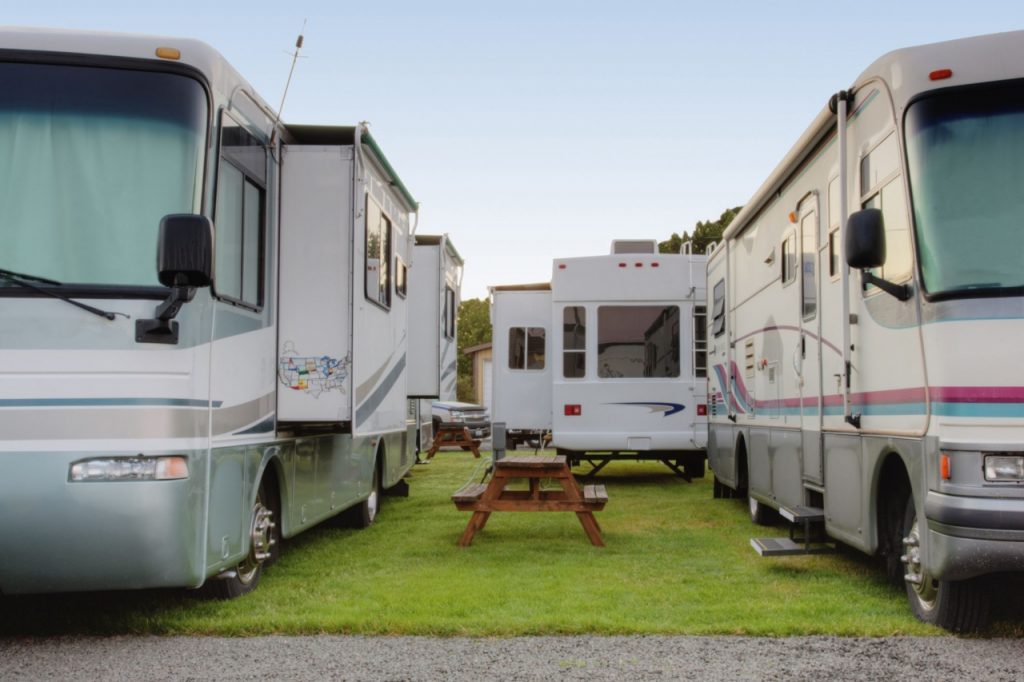
You will find a recreational vehicle for every traveler and every travel situation. There are so many options to choose from that it won’t be difficult to find one that fits your budget and desired lifestyle.
This guide to RV varieties will help you make a decision.
Types of Motorhomes
Motorhomes form the backbone of the RV industry. Yes, they are the most expensive RVs on the market but also the biggest and most efficient. More convenient than travel trailers, these self-contained vehicles are easier to set up and are suitable for a family with kids.
There are different classes of RV, mainly three categories: A, B, and C. But, a distinct class B+ category is also there and slowly gaining popularity.
1. Class A Motorhomes
The largest and most expensive of all types of RVs. These are literally a home on wheels. Dedicated travelers who like to stay on the road most of the year prefer these vehicles for their adequate interior space and amenities like home.
Ranging from 21 to 45 feet in length, driving these long vehicles does not demand any special CDL license. The chassis-based driveline is set up either a pusher or a puller configuration.
The Class A motorhomes are great for full-time RVing and weekend getaways for a large group or family. But, the bigger size and bulky profile are not suitable for narrow roads, winding mountain passes, and many campsites.
Pros
- Adequate space for a family
- Plenty of storage
- Offers home-like facilities
- Suitable for full-time camping
Cons
- High price and expensive to maintain
- Not suitable for all roads and campsites
- Not good for running errands
2. Class B Motorhomes
The self-contained vehicles are much smaller than the Class A type. Built like a van, they have a van chassis, raised roof, they provide almost all standard facilities and basic appliances. The interior space is suitable for one or two travelers
Driving, maneuvering, and running errands are easier and more convenient than their bigger counterparts. You can cruise any road and camp in any campsites with these camper vans.
Pros
- Price and maintenance are budget-friendly
- Easy to drive and maneuver
- Fit almost all campsite size requirements
Cons
- No luxury
- Limited interior and cargo space
3. Class B+ Motorhomes
These vehicles are like a crossover between class B and C motorhomes. Built on a van or bus chassis, they are bigger than class B but are still smaller than class C and A.
It can accommodate more people and have more storage than a class B motorhome.
Pros
- Bigger than a class B vehicle
- More cabin space
- Offer a standing shower along with a bathroom
Cons
- More expensive than a class B
You may also like:
4. Class C Motorhomes
These midsize motorhomes are smaller than class A but bigger than B and B+ models. Built on a truck or van chassis, the 20 to 30 feet long vehicles are perfect for a small family or group.
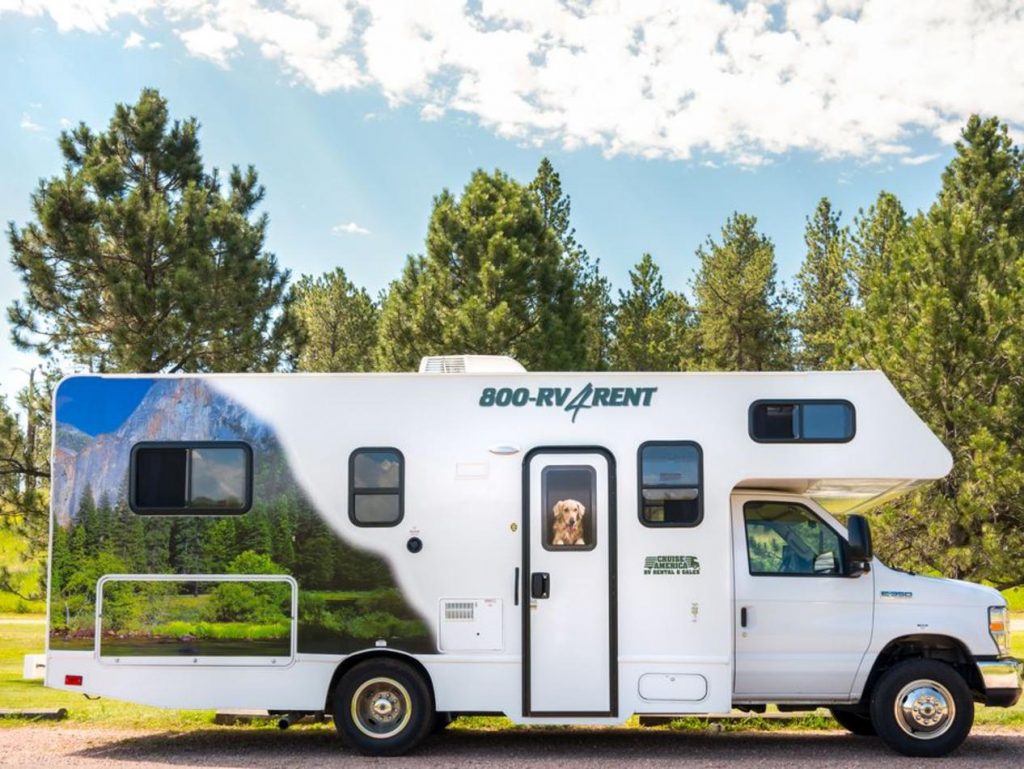
They offer almost all the advantages and facilities of class A vehicles but at a lower price and overall cost for maintenance, repair, and fuel.
Pros
- Equipped with all necessities
- More space than class B vehicles
- Suitable for a small family
Cons
- Still expensive
- Not safe to drive in narrow, tricky roads
There are two more motorhome types that are less popular but suitable for those people who like to enjoy all the luxuries of home on the road.
5. Toterhomes
These are some of the most expensive motorhomes in the world, costing more than half a million dollars. Toterhomes are literally homes on wheels equipped with many deluxe features.
6. Diesel Pushers
Just like toterhomes, these vehicles are expensive and luxurious. These are made for RVers who like long trips but are unwilling to endure the toil on the road. Diesel pushers are equipped with a powerful engine that produces plenty of horsepowers.
Towable RVs
There are various types of recreational vehicles and the towable models are another category. If you are a solo traveler or don’t have the budget to purchase a motorhome, these towable RVs are the best alternatives.
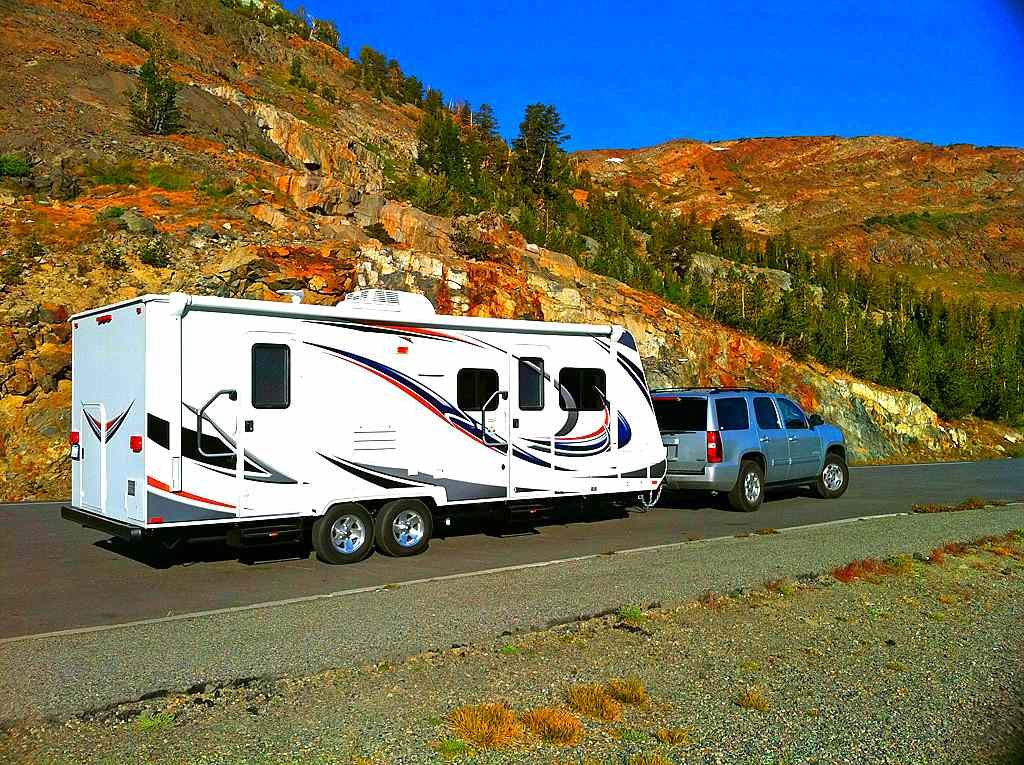
As the name suggests, you have to hitch them to a car or truck for transportation. The towable types of RVs have various sub-categories:
1. Travel Trailers
The trailers look like a large container and have the most basic facilities of a home. You can choose a more expensive model with luxury amenities too. Available at a variety of sizes, they are a lifesaver for beginner RVers who are on a budget. They are built on a standard trailer frame.
There are two types of travel trailers. One is traditional that is described above and the other one is an expandable travel trailer, which is a hybrid between a traditional model and a pop-up camper. With the addition of a pop-up, they offer more space once parked.
- You may also like: 8 Travel Trailer Brands to Avoid Today
2. 5th Wheel Trailers
If you are not yet ready for a motorhome but want to step up your game from a travel trailer, a fifth wheeler is a correct choice. They are similar to a travel trailer in terms of length and features but can carry more weight. However, the dimensions could be a bit wider. The name comes from the fifth wheel or gooseneck connector that connects it to the tow vehicle. For this reason, towing this type of trailers is easier.
- You may also like: Fifth Wheel Vs Travel Trailer: The Complete Comparison
3. Campers
One of the best vehicle options for those who are going to start RVing. There are different types of campers, and each of them is capable of providing the enjoyment of camping without the high price tag.
Think of a cross between a trailer and a tent, and you will get the idea of a pop-up camper. The base is a solid construction that accommodates the kitchen and bathroom. The bedrooms are canvas extensions, just like foldable tents. These trailers are easy to tow and packing up is highly convenient as you have to just fold up everything.
On the other hand, a truck bed camper is the easiest to set up if you already have a truck. It’s just like carrying a small house on the truck bed. Truck campers are mostly available between 8 and 20 feet in length. Before buying a unit, make sure that it will fit your vehicle.
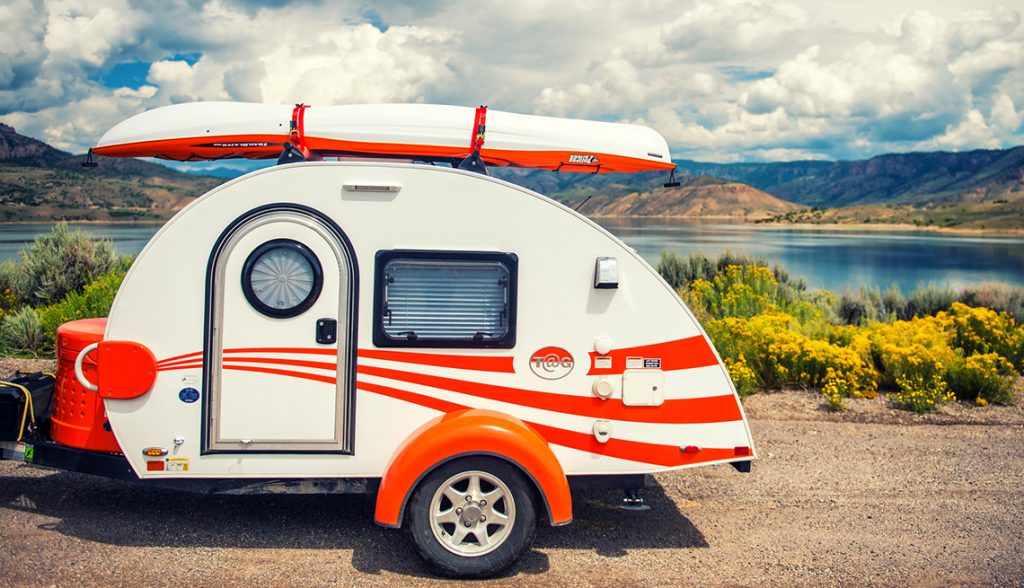
A mini-camper trailer is one of those types of RVs that cater to solo travelers. These lightweight vehicles can be as small as only 4-foot long. They were highly popular in the 1960s and are currently making a comeback. The TearDrop model with a large sleeping space is the most popular so far. Some other models offer an open-up kitchen area on the back side. These tiny vehicles are equipped with proper seating, sleeping place, water storage, bug screens, and other facilities that you need to survive while camping.
4. Toy Haulers
The best option for adventurous RVers. Combining the features of a travel trailer and sport utility trailer, they offer enough storage for everything from dirt bikes to motorcycles, jet skis, and ATVs. These vehicles will pamper the sports-loving soul of every outdoor enthusiast.
The storage or garage is located in the rear compartment. A folding wall is also there that doubles the function as a loading ramp. The living space is on the front side of the vehicle. The living quarter is too congested and you have to practically live side by side of the motorized equipment and supplies.
Special Types of RVs
Not all types of recreational vehicles that run on wheels are used for only camping. There are some variations that do not conform to traditional concepts.
1. Ice Fishing RVs
The custom-built vehicles are mostly restored old travel trailers. Ranging from 6 to 30 feet long, these have all the facilities of a regular motorhome. What’s different, then? Well, an ice fishing RV has seating arrangements for 2 to 6 fishermen and holes on the floor that can be uncovered.
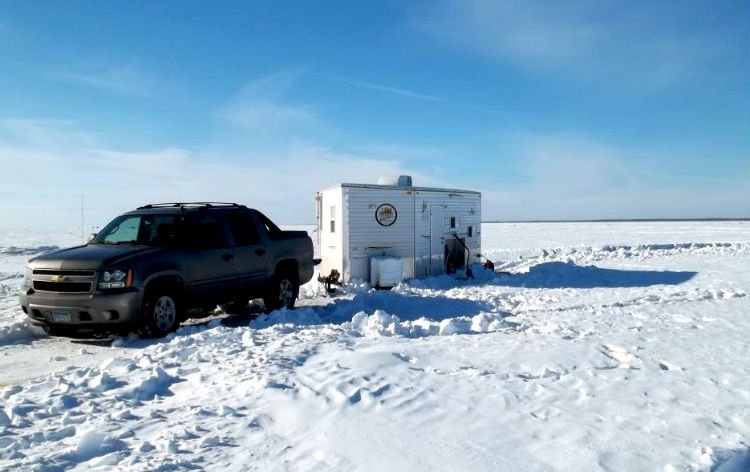
2. Park Models
These towable types of RVs are designed like a home. Offering all the amenities of a motorhome or trailer, they have windows, porches, and siding like a regular home. As they are bigger in size (almost 400 square feet), it is practical to set them up in a place for an extended period, like an entire season.
Last Updated on June 26, 2019
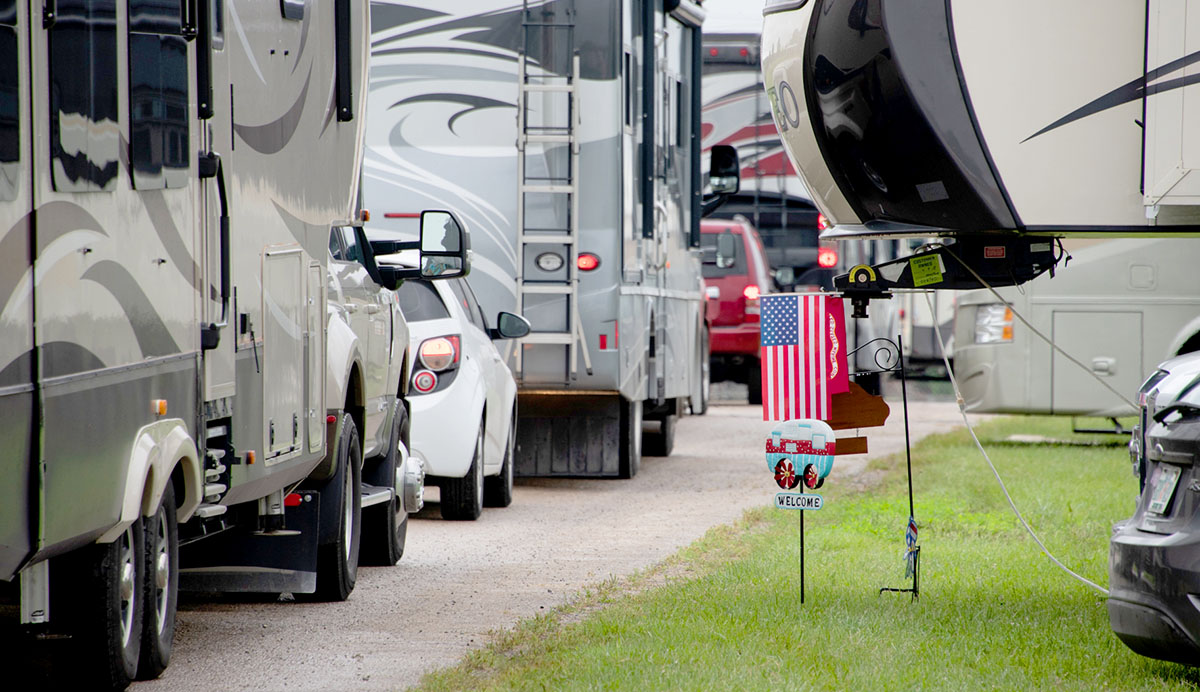
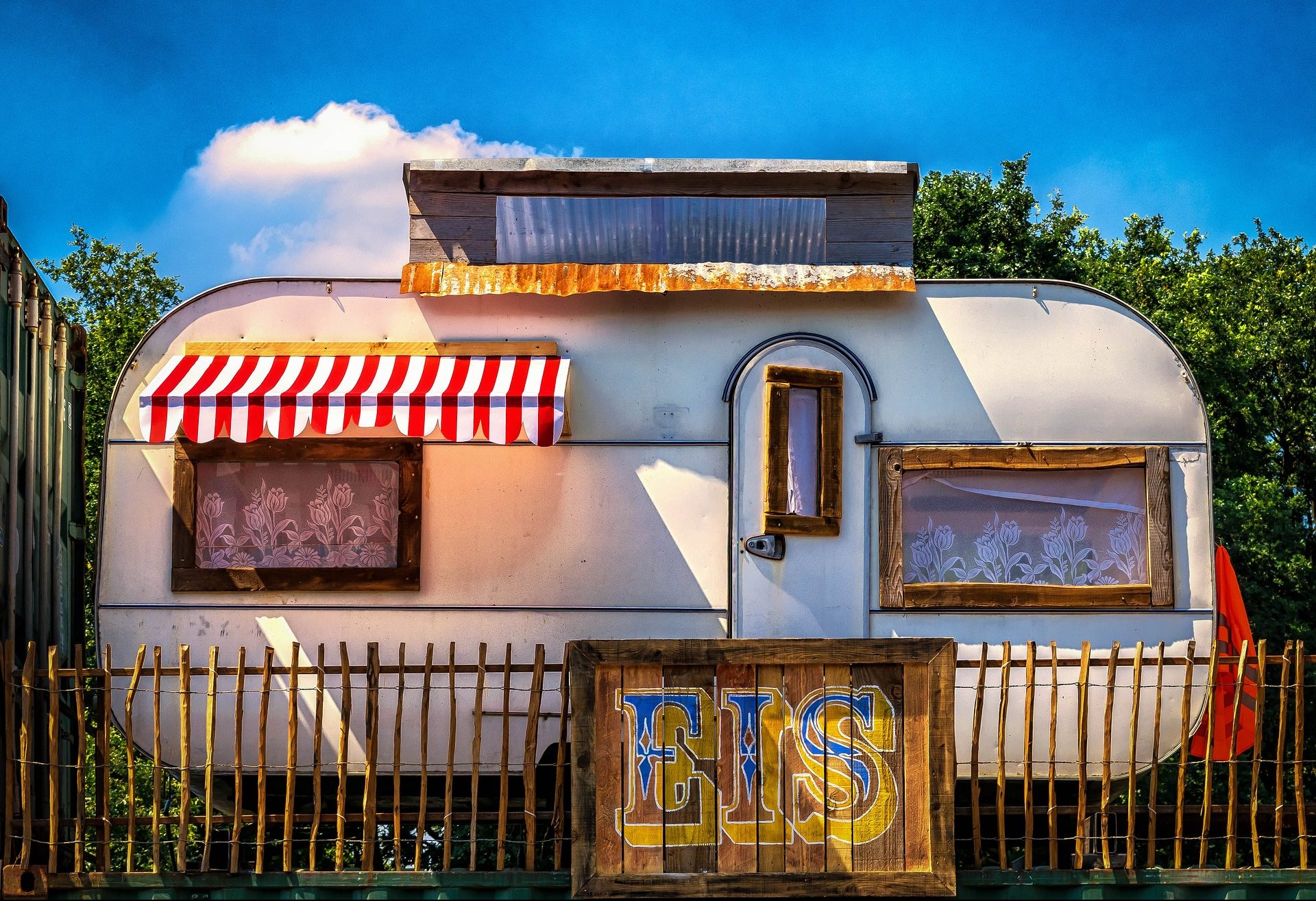
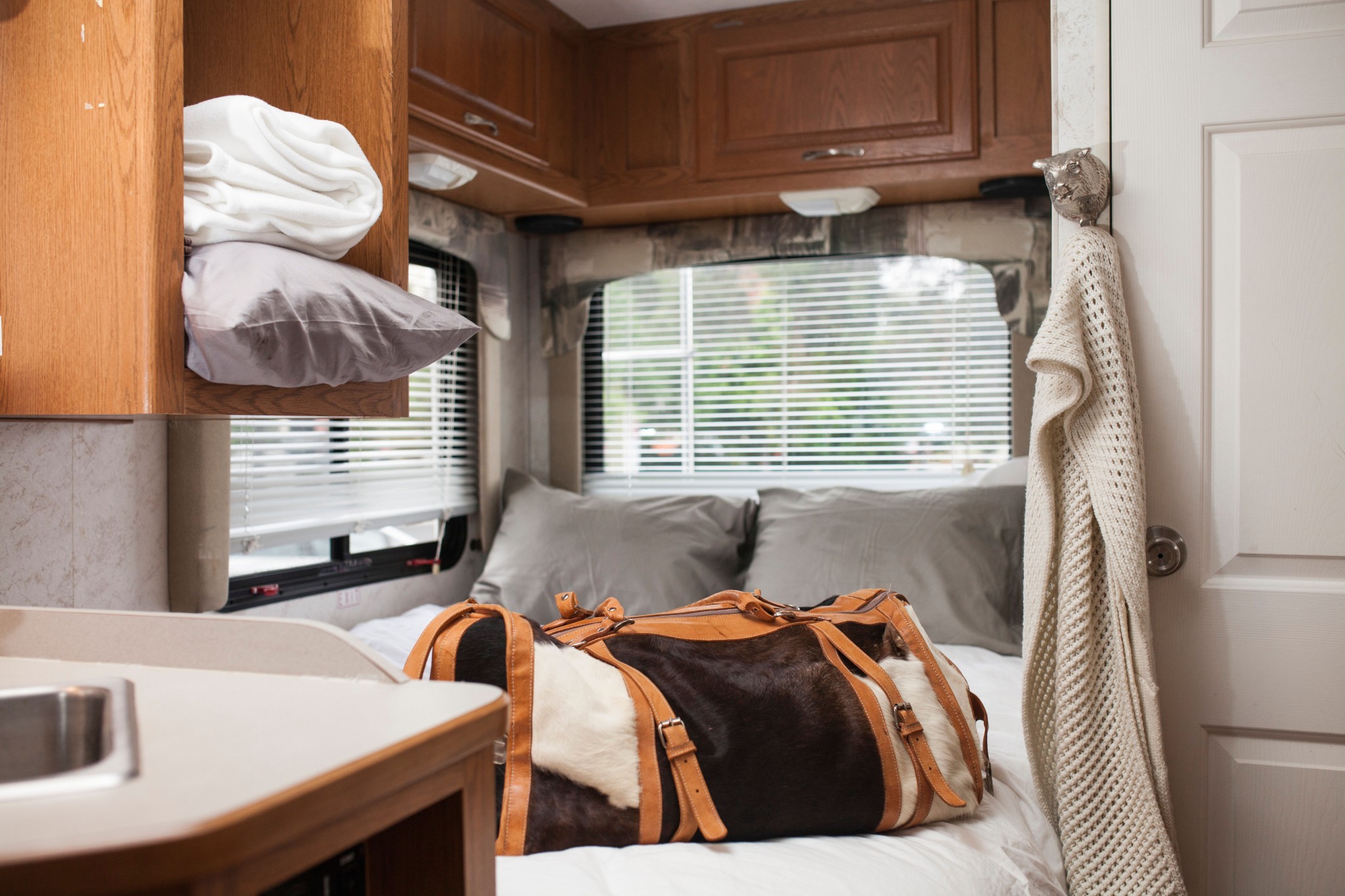
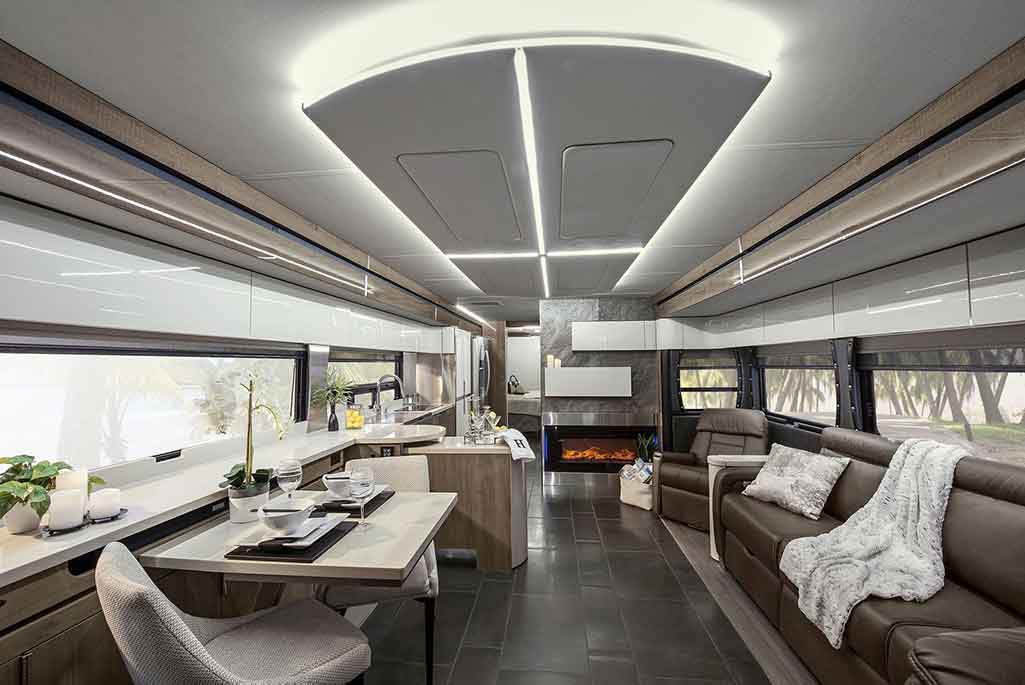
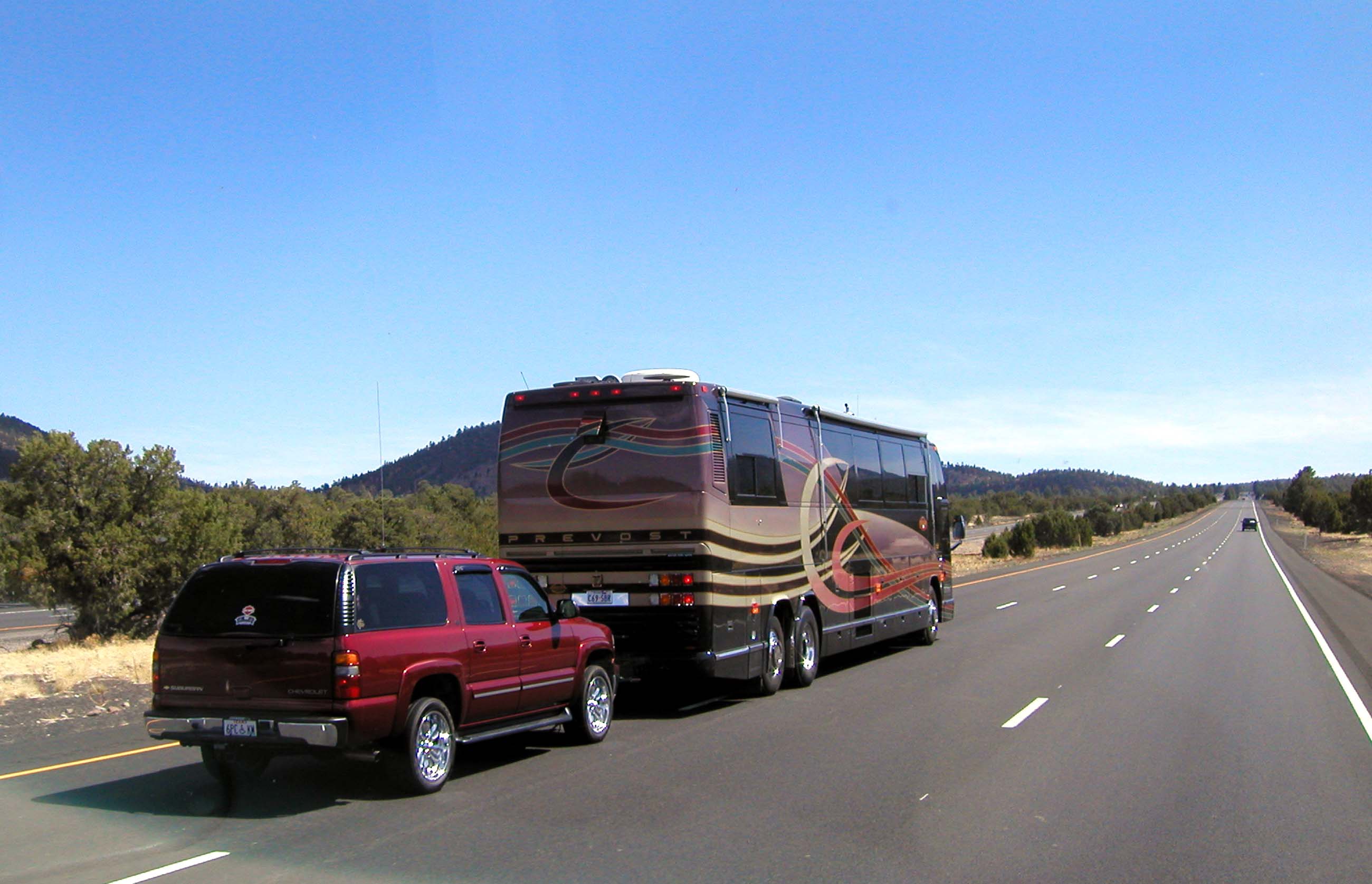
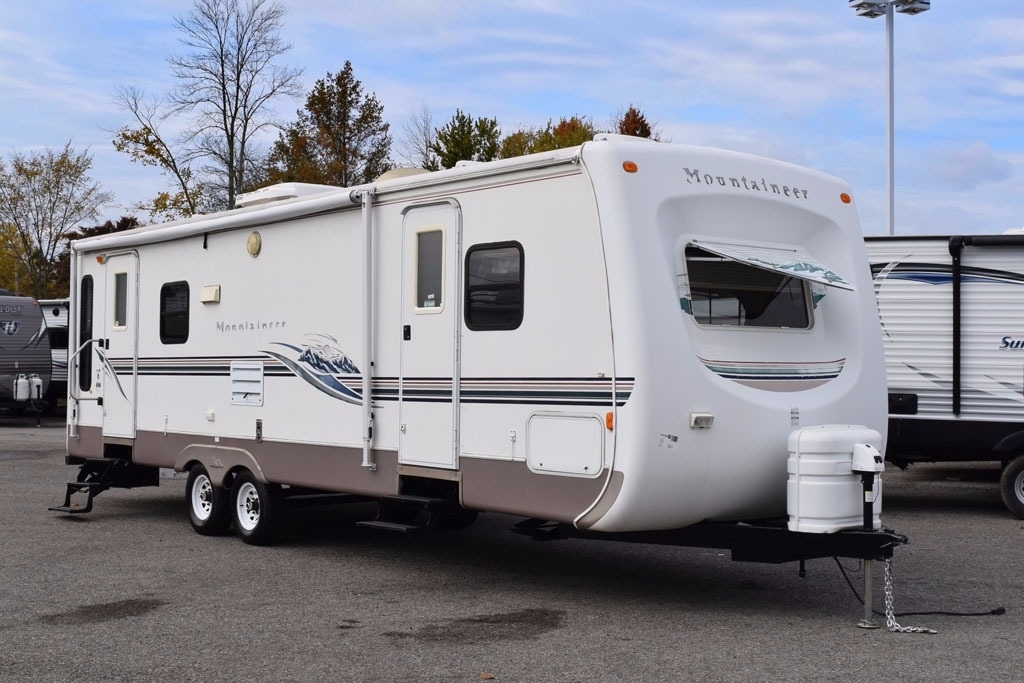
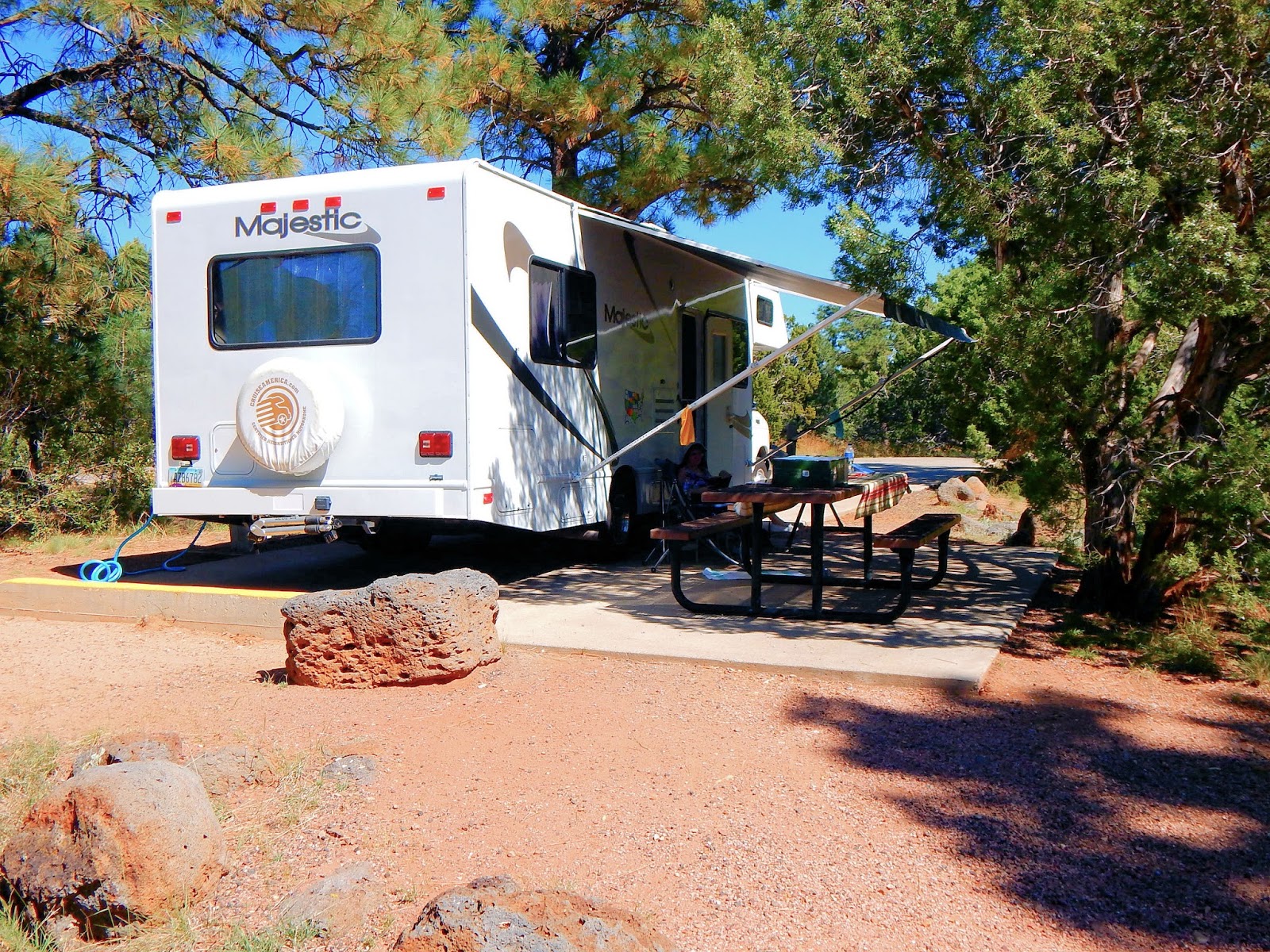
Thor is junk . It also owns Jayco and Keystone. I guess when one of the richest men own them they don’t care about the little man. Warren Buffets been screwing people all his life . His products are junk
I hate Jayco. They do NOT stand behind their junk motor home. Never again.
Can someone address the extra towing vehicle power you need to compensate for wind drag and uphill pulling for a trailer? Also high altitude pulling?